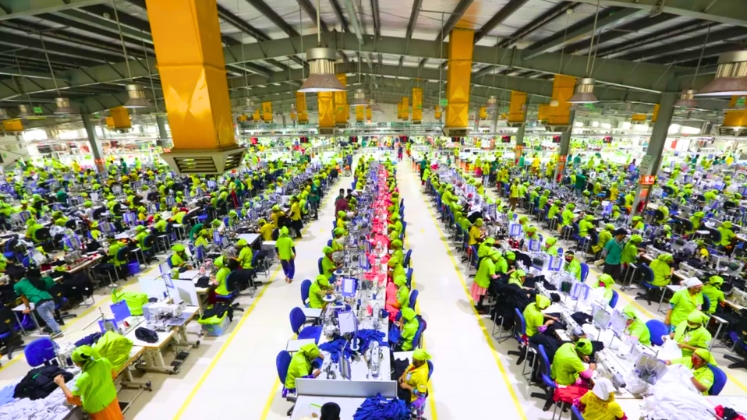
Due to the ongoing energy crisis, rising operating costs, and shipment delays, apparel exporters are experiencing a 25–40 per cent decrease in orders. As a result, their factories are operating well below capacity.
Despite a 20–33 per cent increase in production costs, manufacturers are being forced to decline export orders because international buyers are giving up to 20 per cent lower rates.
Buyers are moving from Bangladesh to competitor nations like India, Pakistan, and Sri Lanka because they can afford to accept lower pricing because of their advantageous exchange rates and quicker shipping.
The country’s largest export sector fears a 7 per cent drop in sales in this year’s peak winter season in the West at a time when the government cut much of incentives and corrected data revealed last 10 months’ export figure was overstated by about US $ 11 billion.
The managing director of Windy Group, Mesbah Uddin Khan, stated that taking orders is becoming more challenging for his company since buyers are proposing prices that are 15 per cent to 20 per cent less than the cost of production.
Mesbah, who on the 14th of July was awarded the highest exporter’s gold trophy in the woven category by the Prime Minister, continued, “The group could not secure 20 per cent orders for August and September this year and the time is over to get orders for the Autumn Holiday season.”
“Order placement has slowed due to low demand in major markets, and buyers are offering lower prices,” said Sparrow Group Managing Director Shovon Islam.
He went on to say that although wage rises and rising gas and power prices have risen overall production costs, Red Sea tensions have increased transportation expenses.
However, buyers are not matching these higher costs with their offers, which means that most manufacturers are unable to schedule orders based on their capacity of production.
He said that small and medium-sized manufacturers are having more difficulty booking orders than large factories.
According to Shovon, buyers are shifting to India and Sri Lanka because they have a stronger competitive advantage than us and can provide lower costs because of better incentives and advantageous exchange rates.
He also referred to buyers’ concerns about timely shipments from Bangladesh. “That’s why some top buyers are relocating their orders to Vietnam, India, and Sri Lanka,” said Shovon Islam, also a director of the Bangladesh Garments Manufacturers and Exporters Association (BGMEA).
BGMEA’s former president Siddiqur Rahman referred to potential geo-political instability because of wars, affecting consumer confidence to some extent.
According to Siddiqur, the exporters’ competitiveness was impacted by the reduction in monetary incentives at a time when gas and energy shortages persisted, leading to delays in shipments and higher manufacturing costs.
In order to keep exporters competitive in the global market, he encouraged the government to reinstate the cash incentive for exporters until a substitute is provided.






